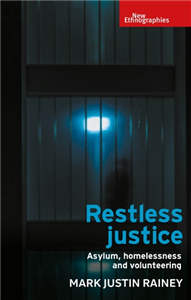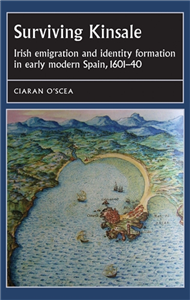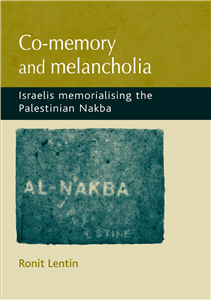Your Search Results
-
Promoted ContentFebruary 2021
Layers
by Poznanski, U.
Can You Believe Your Eyes? Dorian has been living on the streets since running away from home, and has always managed to fend for himself pretty well. But when he wakes up one morning beside a dead homeless man who has evidently been murdered, Dorian panics – he can’t remember anything of what happened the previous night. Is he responsible for the man’s murder? Then a stranger appears with an unexpected offer of help, and Dorian seizes the opportunity with both hands – this is his chance to hide from the police. The stranger works with young people in need, and he takes Dorian to a villa where he is given food, new clothes and even schooling.But Dorian soon learns that you get nothing for free in this life. In return for being looked after at the villa, Dorian is expected to distribute mysterious free gifts – gifts which are very carefully sealed. And when an unexpected turn of events results in him keeping one of the gifts, he finds himself being hunted by merciless pursuers. After the international YA-bestseller Erebos, Saeculum and The Eleria-Trilogy Ursula Poznanski now presents her new thriller: Layers Awarded with the Hans-Jörg-Martin Prize 2016 for the best YA-Thriller! More information also available under: www.layers-buch.de
-
Promoted ContentHumanities & Social SciencesMay 2025
Statelessness after Arendt
European refugees in China and the Pacific during the Second World War
by Kolleen Guy, Jay Winter
This book is a study of statelessness in the period of the Second World War. It breaks new ground by focusing not on Europe, but on the Asian and Pacific theatres of the conflict. This perspective enables us to go beyond Hannah Arendt's classic account of statelessness in her Origins of Totalitarianism. To her, statelessness was the product of a failed European nation-state system. We find a very different story when we examine the history of stateless people, many of them Jews, fleeing to Asia from Europe. In Asia, we see that being stateless was not a uniform experience, but a variety of possibilities reflecting the political structure of the states and cities in which refugees found shelter. We find too that stateless people managed to enter the political realm long before they reached the threshold of citizenship.
-
 Trusted Partner
Humanities & Social SciencesJanuary 2026
Trusted Partner
Humanities & Social SciencesJanuary 2026The tragedy of the border
Asylum, destitution and homelessness
by Mark Rainey
Amid the global migration crisis, the UK has created and increasingly hostile policy environment for asylum seekers that has pushed many into unnecessary hardship and homelessness. This volume is an ethnographic study alongside refused asylum seekers and refugees living destitute in Manchester, UK. Based on over three years of research in emergency night shelters and on the streets of the city, it draws on the stories and experiences of those who have been driven into destitution by an antagonistic immigration system. The book not only explores how legal and temporal uncertainty shapes the daily lives of those who have had their asylum claims refused, but also attends to the experiences of volunteers and activists working on the frontline of the crisis. While the work is rich in detail, it also extends outwards and offers new insights into our understanding of borders and the need to rethink the grand notions of justice and hospitality.
-
 Trusted Partner
Humanities & Social SciencesSeptember 2020
Trusted Partner
Humanities & Social SciencesSeptember 2020Cooking up a revolution
by Sean Parson, Uri Gordon, Laurence Davis, Nathan Jun, Alex Prichard
-
 Trusted Partner
Humanities & Social SciencesJuly 2015
Trusted Partner
Humanities & Social SciencesJuly 2015Surviving Kinsale
Irish emigration and identity formation in early modern Spain, 1601–40
by Ciaran O'Scea, Joseph Bergin, Penny Roberts, Bill Naphy
In the aftermath of the Battle of Kinsale in 1601 as many as 10,000 Irish emigrated from Ireland to Galicia in the north-west of Spain. Between 1601 and 1608 the brunt of this immigration fell on the city of La Coruña, which became a virtual encampment of starving homeless Irish nobles, soldiers, women, children, elderly and poor. This is the story of that community and how its members adapted to their new circumstances, and how they themselves, their social structures and beliefs were transformed by their immigrant experience. Through an examination of the community across a broad range of social cultural aspects such as family, literacy, material culture, the acquisition of honours, religious sentiment, and social ascent, important new insights into Irish socio-cultural history have been uncovered. ;
-
 Trusted Partner
June 2024
Trusted Partner
June 2024Dark Scar
A psychological Thriller. Dr. Evelin Wolf and Alex Gutenberg 2
by Roxann Hill, Paul Wagle, Rebecca Steinberg, John Julian, Nicholas Mockridge, Alexios Saskalidis
Death lurks in the shadows Who are you? Hamburg Criminal Psychologist Dr. Evelin Wolf wonders as she examines the severely disturbed homeless man with the conspicuous scar across his face. The extremely aggressive man with no memory or identity is alleged to have committed a brutal murder. But Evelin and Assistant District Attorney Alex Gutenberg doubt his guilt and suspect there is something more behind the supposedly crystal-clear case. Shortly thereafter, Hamburg is shaken by a series of murders unparalleled in cruelty and sadism. The perverted killer draws a bloody trail across the Hanseatic city and links it with a clear message to Alex and Evelin: Revenge. Alex and Evelin work feverishly to solve both cases. In the process, they make a fatal mistake. And the killer exploits it mercilessly…
-
 Trusted Partner
Literature & Literary StudiesDecember 2000
Trusted Partner
Literature & Literary StudiesDecember 2000Kazuo Ishiguro
by Barry Lewis, John Thieme
How Japanese is Ishiguro? What role does memory and unreliability play in his narratives? Why was The Unconsoled (1995) perceived to be such a radical break from the earlier novels?. The first complete study to consider all of Ishiguro's work from A pale view of the hills (1982) to When we were Orphans (2000), including his short stories and television plays. Explores the centrality of dignity and displacement in Ishiguro's vision, and teases out the connotations of home and homelessness in his fictions. Invaluable for students at all levels, especially as The Remains of the Day by Ishiguro is a set text at GCSE and A Level. ;
-
 Trusted Partner
Literature & Literary StudiesApril 2009
Trusted Partner
Literature & Literary StudiesApril 2009Mientras los hombres mueren
Carmen Conde
by Catherine Davies, Jean Andrews
Carmen Conde is a major figure in twentieth-century Spanish poetry. Though neglected up to now, Mientras los hombres mueren is the most important collection of war poetry to emerge from the Spanish Civil War. It was first published, in a limited edition, in Italy in 1953. Though it has been included in its entirety in anthologies of her work published in Spain in 1967, 1986 and 2007, this is the first free-standing edition since 1953 and the first ever critical edition. The collection was written in 1938-39, in Valencia, then the seat of the Republican Government. In prose poetry densely packed with imagery of nightmarish destruction, Conde gives voice to the experience of women and children suffering bombardment from air and sea, hunger and homelessness, and the loss of husbands, brothers and fathers at the front. The second half of the collection, 'A los niños muertos en la guerra', is an extended elegy for all those children killed in bombing raids during the war. This edition will be of interest to students and scholars of the Civil War and lovers of Spanish poetry in general. ;
-
 Trusted Partner
Political oppression & persecutionJuly 2014
Trusted Partner
Political oppression & persecutionJuly 2014Co-memory and melancholia
Israelis memorialising the Palestinian Nakba
by Ronit Lentin
The 1948 war that led to the creation of the State of Israel also resulted in the destruction of Palestinian society when some 80 per cent of the Palestinians who lived in the major part of Palestine upon which Israel was established became refugees. Israelis call the 1948 war their 'War of Independence' and the Palestinians their 'Nakba', or catastrophe. After many years of Nakba denial, land appropriation, political discrimination against the Palestinians within Israel and the denial of rights to Palestinian refugees, in recent years the Nakba is beginning to penetrate Israeli public discourse. This book, available at last in paperback, explores the construction of collective memory in Israeli society, where the memory of the trauma of the Holocaust and of Israel's war dead competes with the memory claims of the dispossessed Palestinians. Against a background of the Israeli resistance movement, Lentin's central argument is that co-memorating the Nakba by Israeli Jews is motivated by an unresolved melancholia about the disappearance of Palestine and the dispossession of the Palestinians, a melancholia that shifts mourning from the lost object to the grieving subject. Lentin theorises Nakba co-memory as a politics of resistance, counterpoising co-memorative practices by internally displaced Israeli Palestinians with Israeli Jewish discourses of the Palestinian right of return, and questions whether return narratives by Israeli Jews, courageous as they may seem, are ultimately about Israeli Jewish self-healing rather than justice for Palestine.















